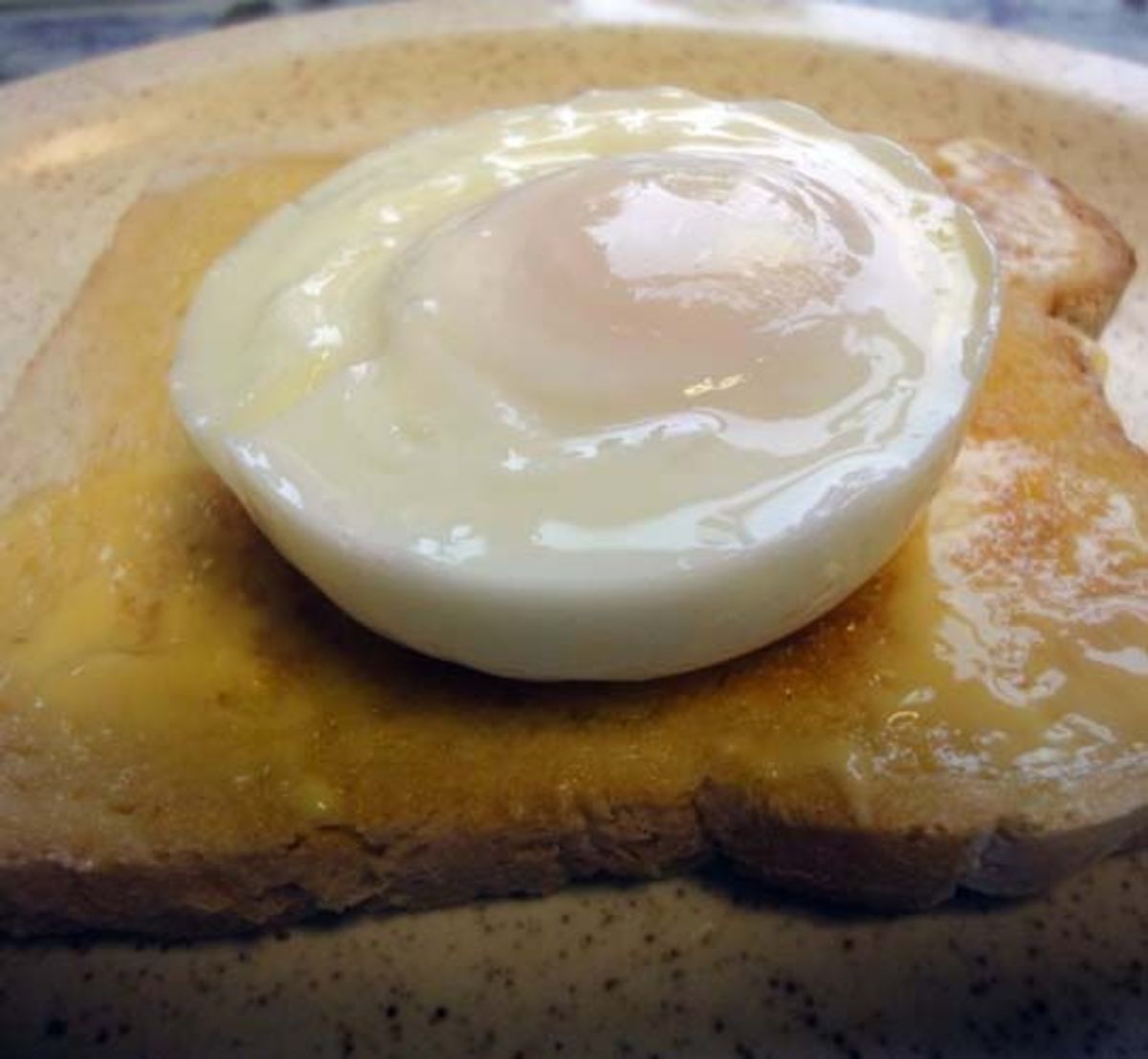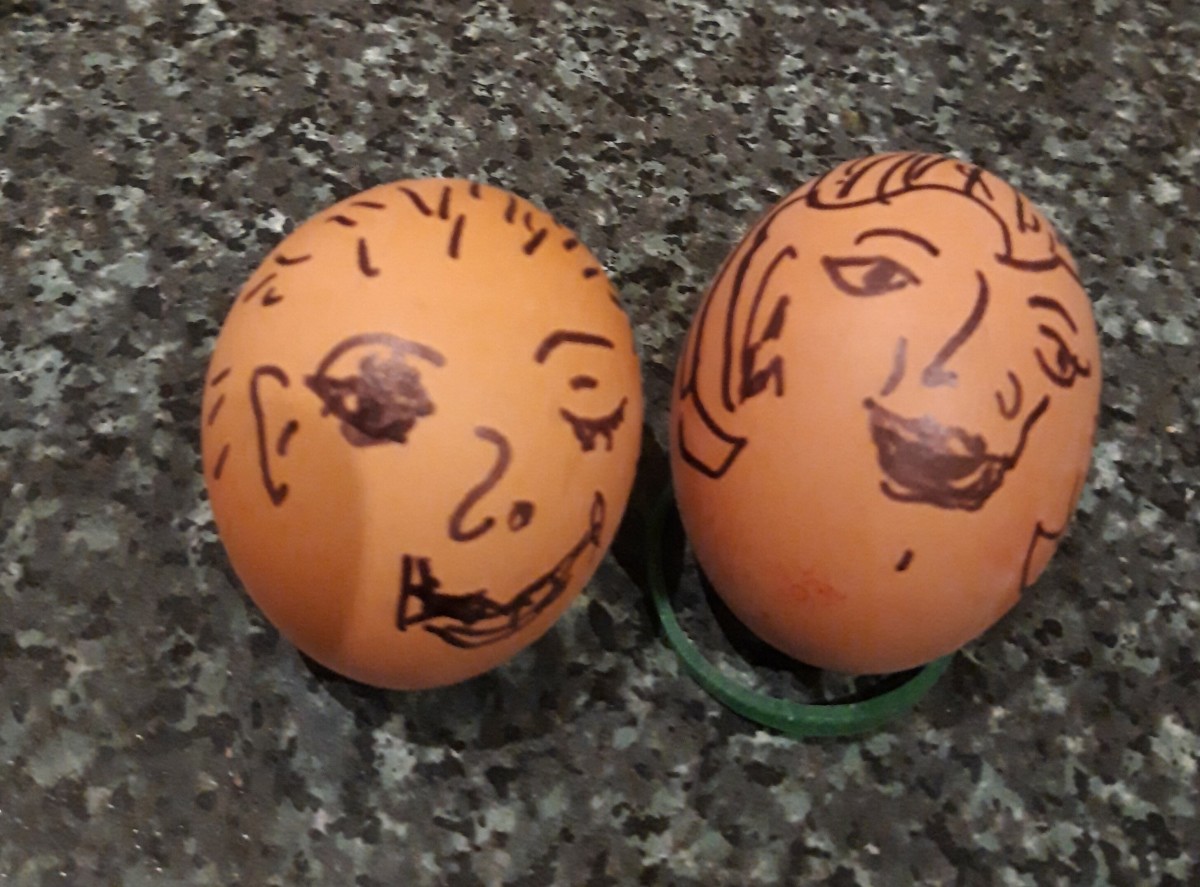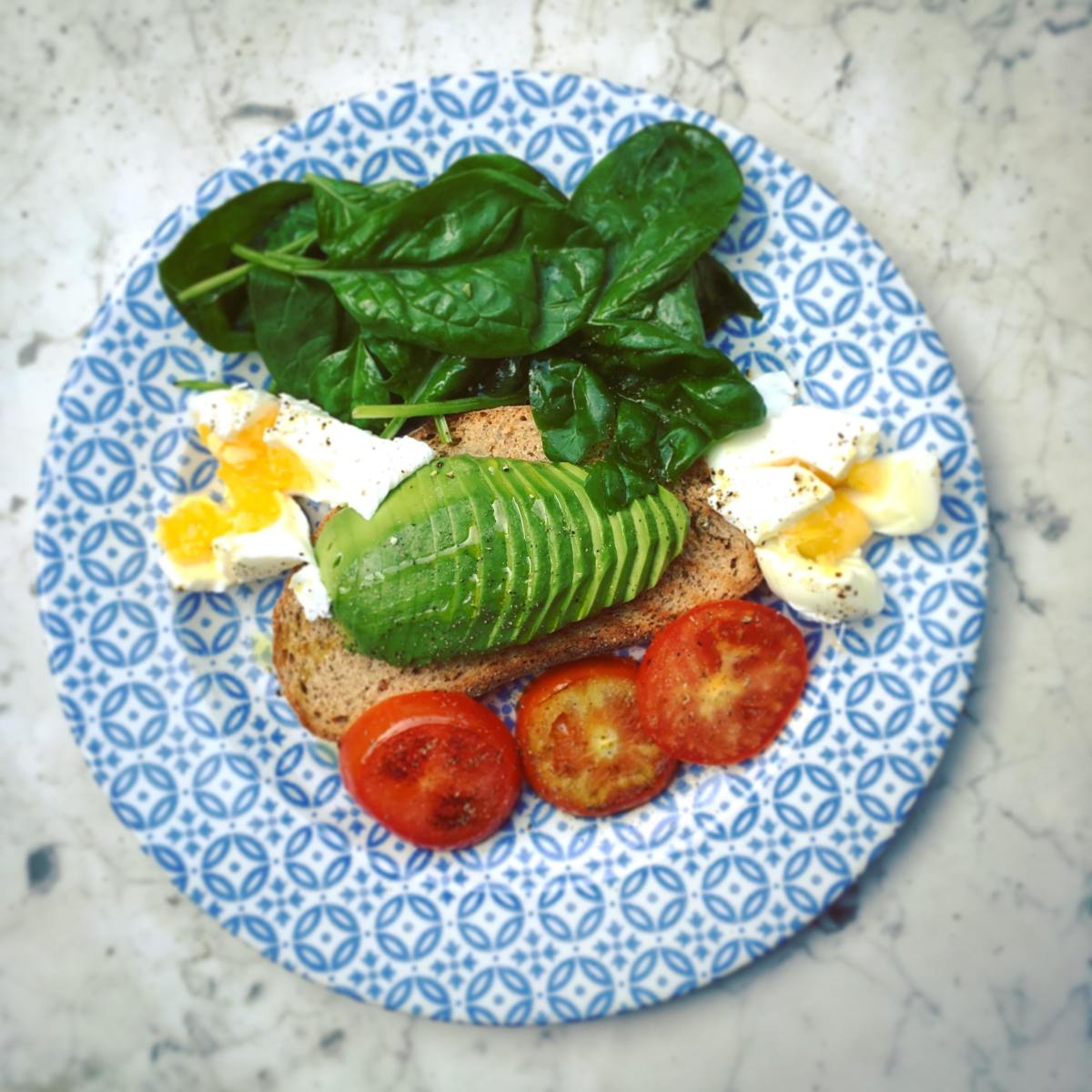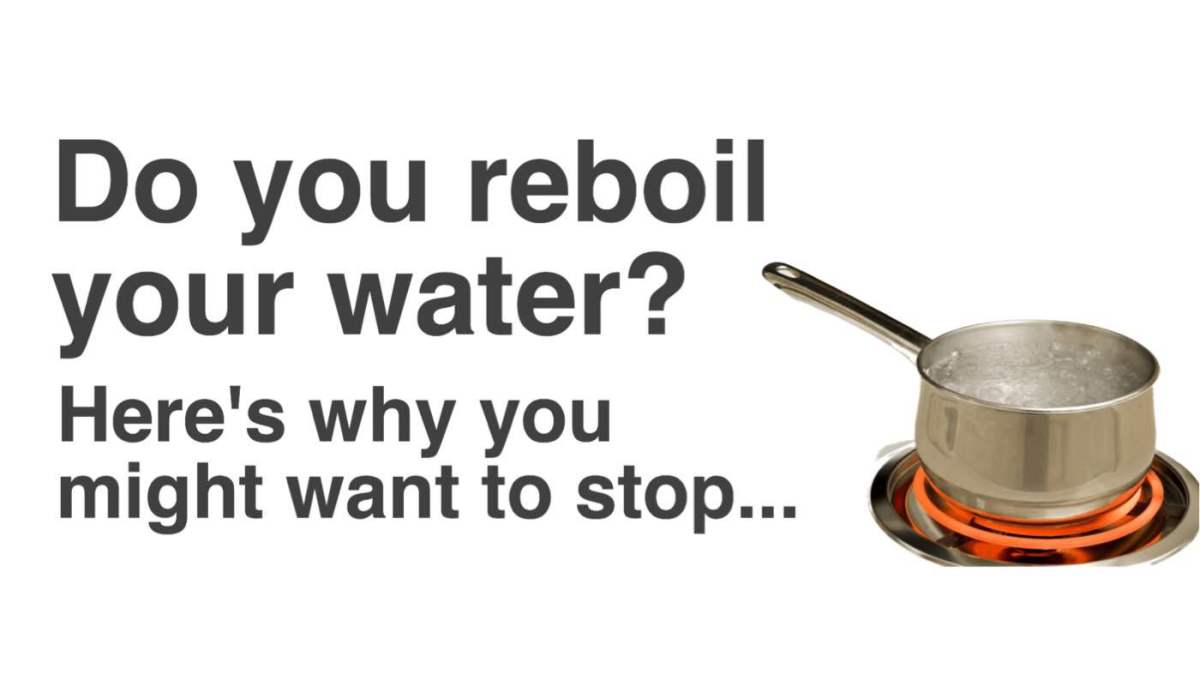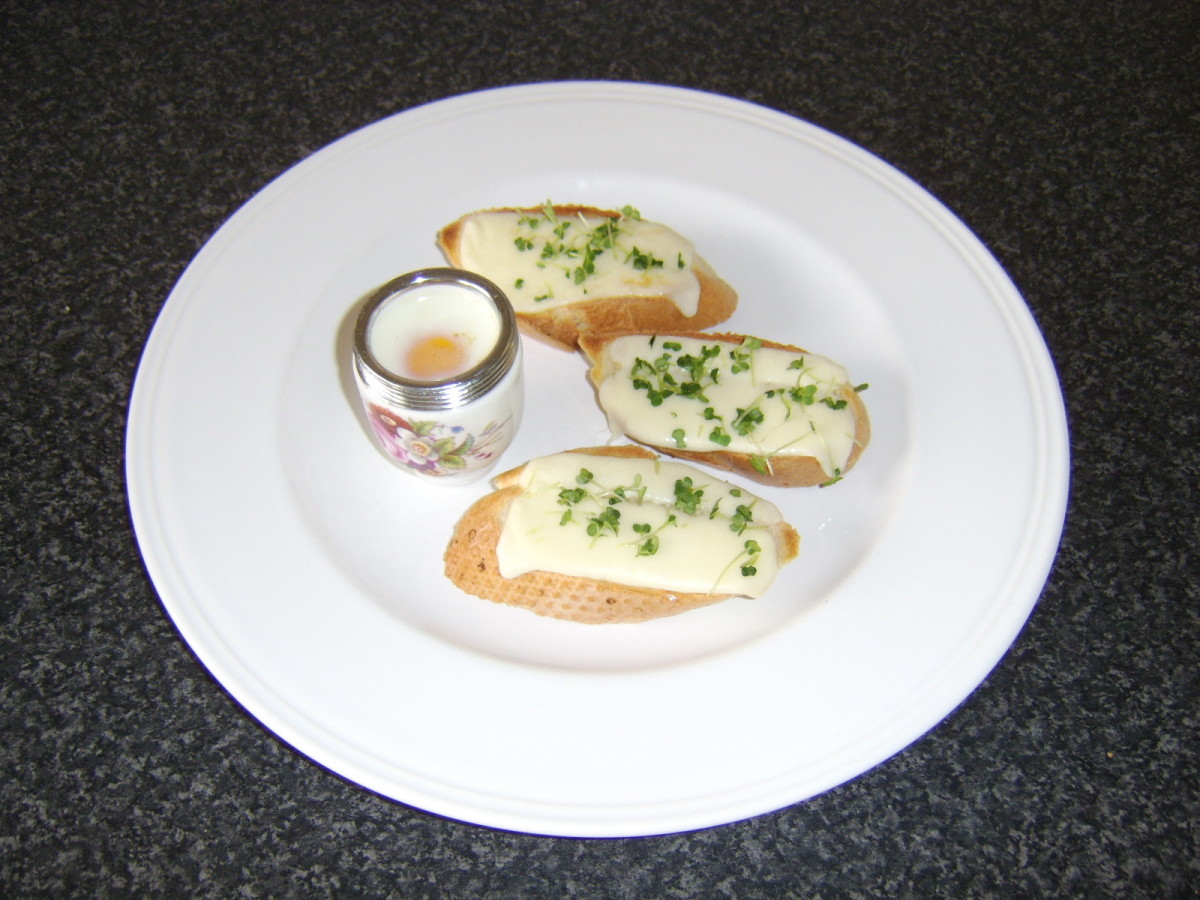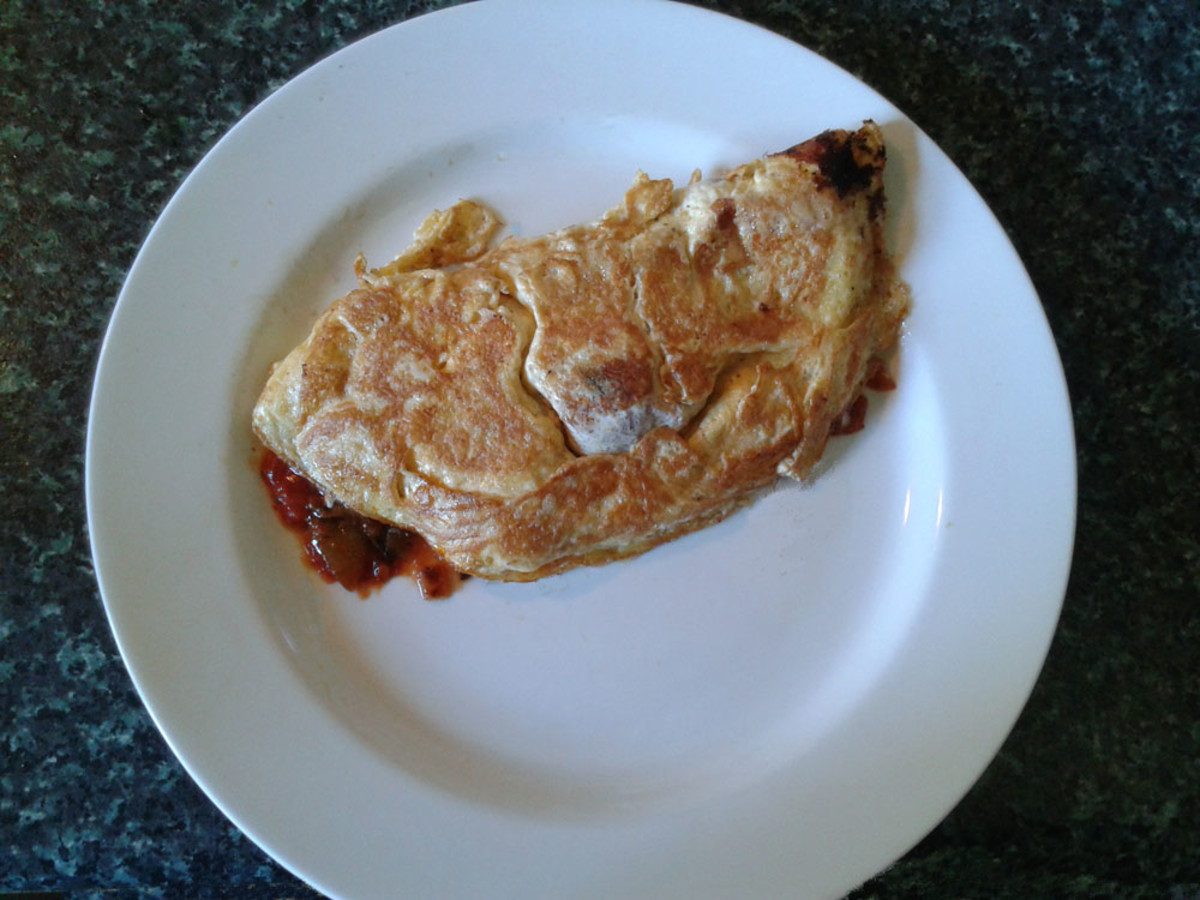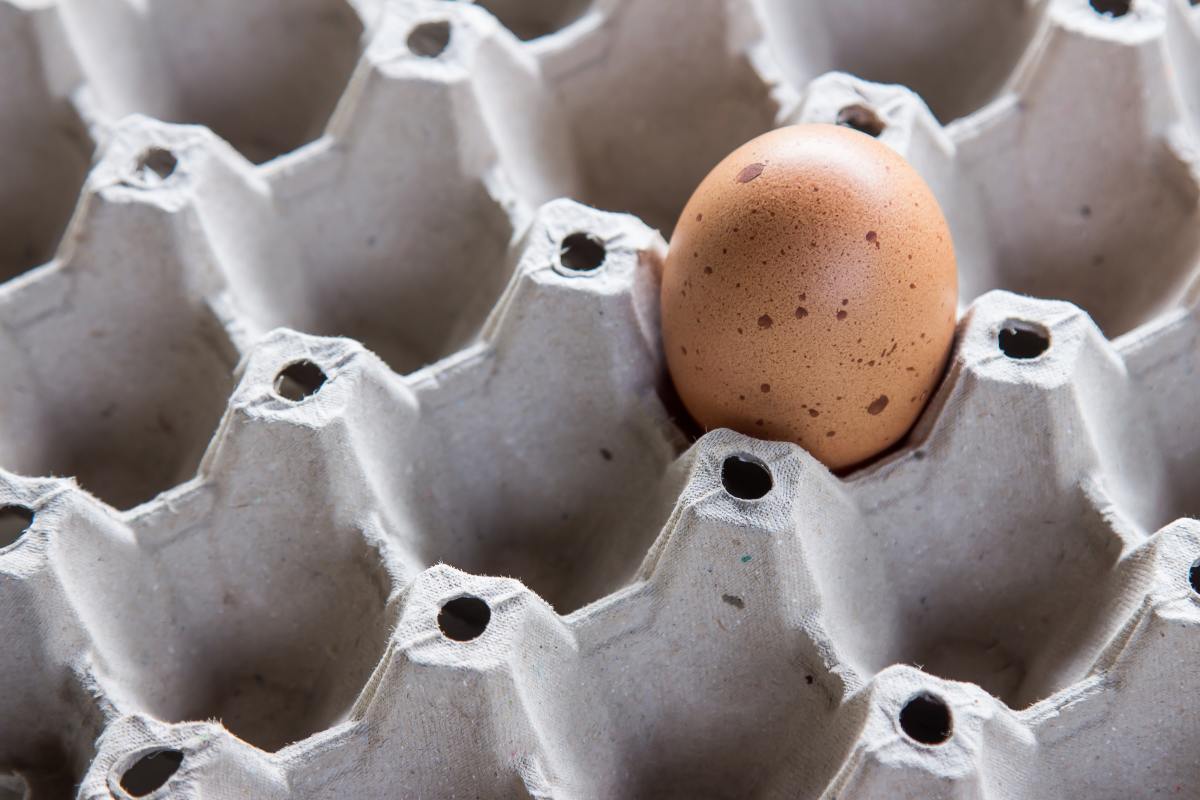Eggs - Boiling them Soft or Hard
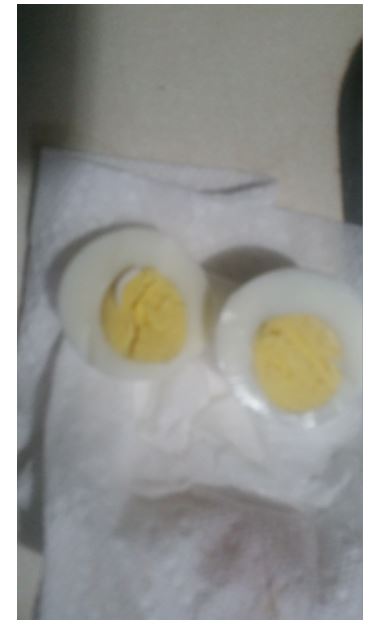
Boiled Egg Facts
- need to cover with cold water, with about half egg space of water above eggs
- add salt to water to stop broken or cracked eggs from breaking or oozing
- bring to a boil, uncovered, about 12 minutes
- cover at boil, and reduce heat to low
- set timer for 12 minutes for hard boiled eggs - yolks will be hard and crumbly
- set timer to 4 minutes, for soft boiled eggs - yolks will be soft, but not runny
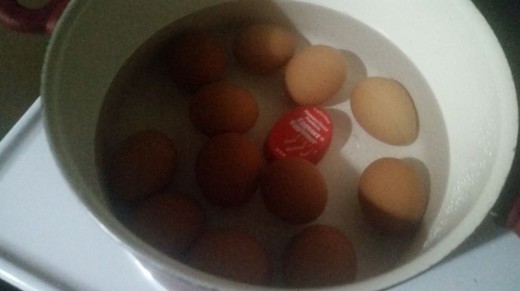
Water Facts
- water should be cool or cold, not hot water
- water should cover the eggs by about an inch
- water should be brought to a boil, usually 12 minutes
- after boil is reached, pot should be covered and heat reduced to low
- set timer for 12 minutes for hard boiled eggs
- a watched pot never boils, isn't true, but feels true
Cooking the Eggs
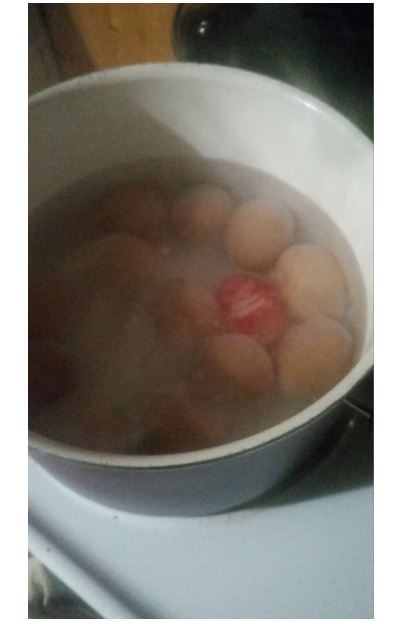
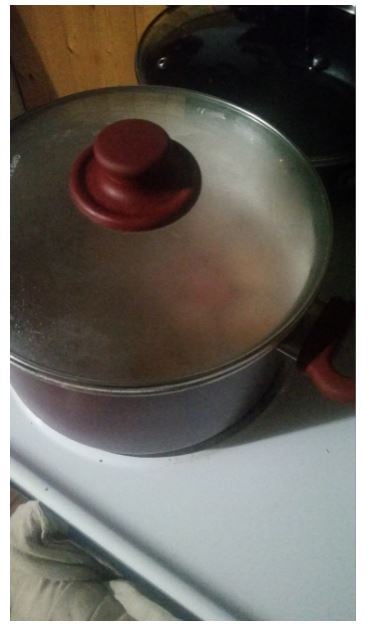
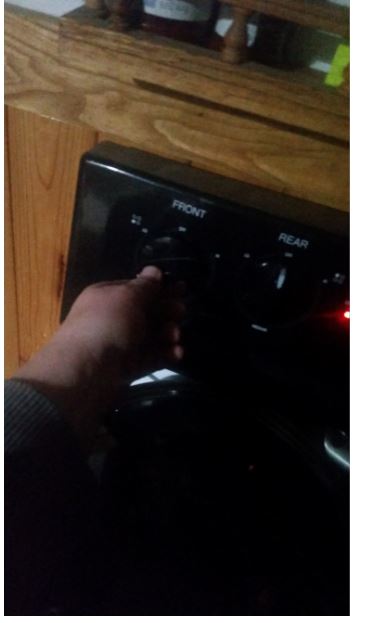
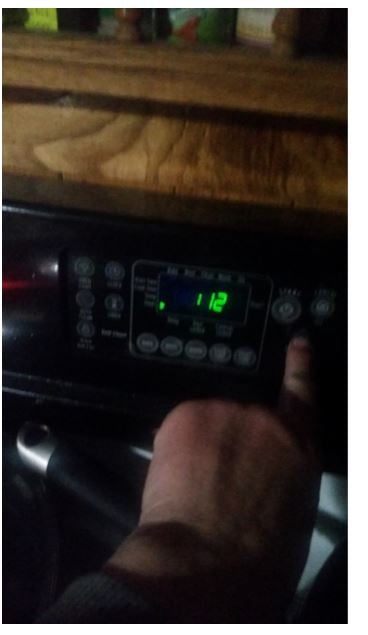
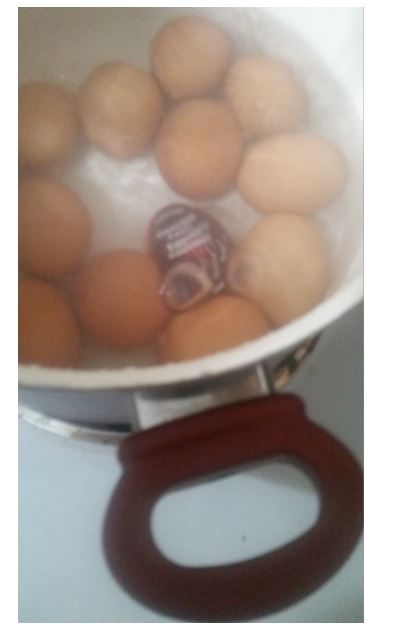
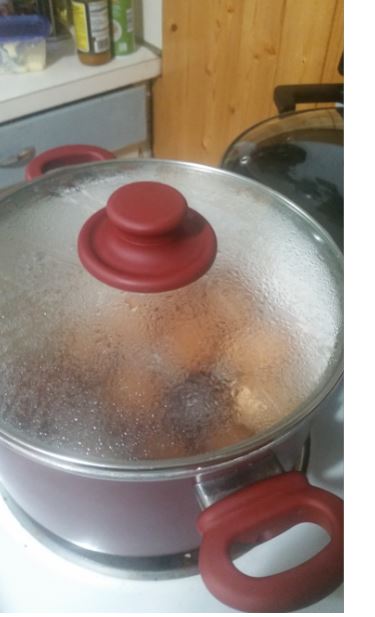
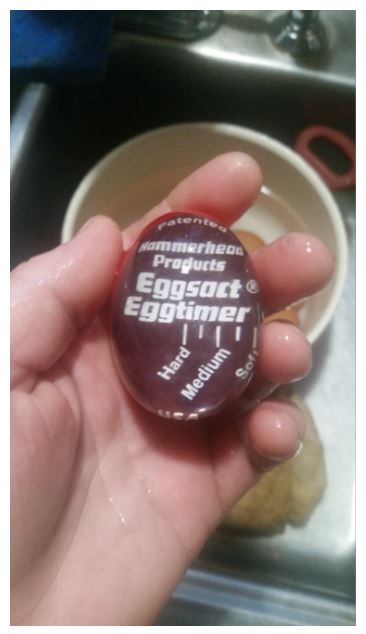
Salt Facts
- salt is necessary to coagulate whites if they emerge from an egg that has a crack
- a teaspoon of salt is enough
Cooling
- remove most of hot water
- add cold water
- drain cold water
- add additional cold water
- feel egg with palm - you can feel if it is cool
- when cool, place in box, cover, and put in refrigerator -eggs smell like sulfur if they are not covered
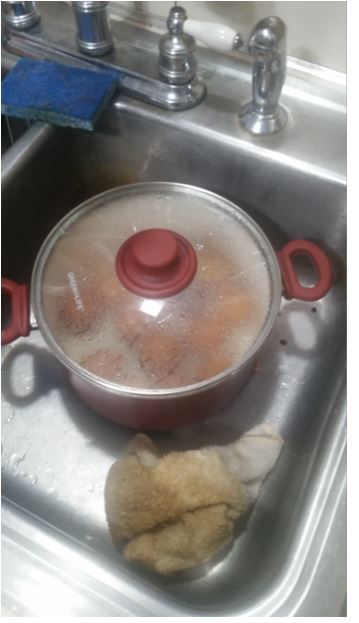
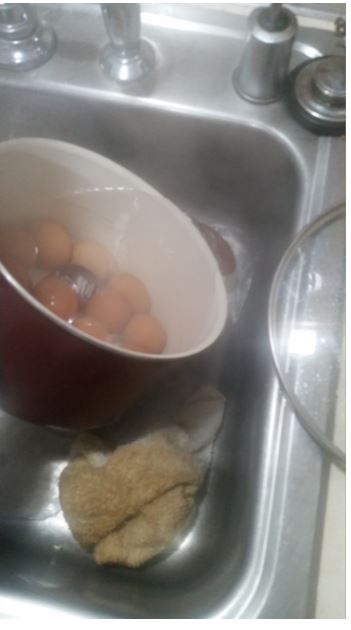
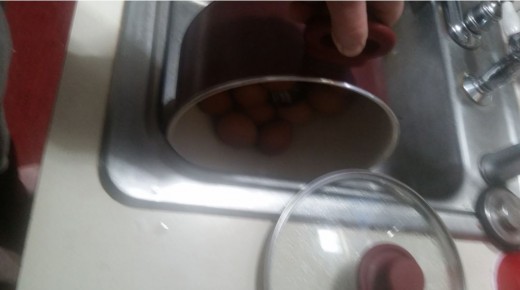
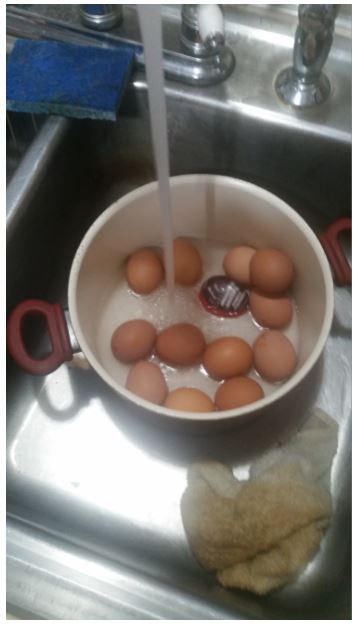
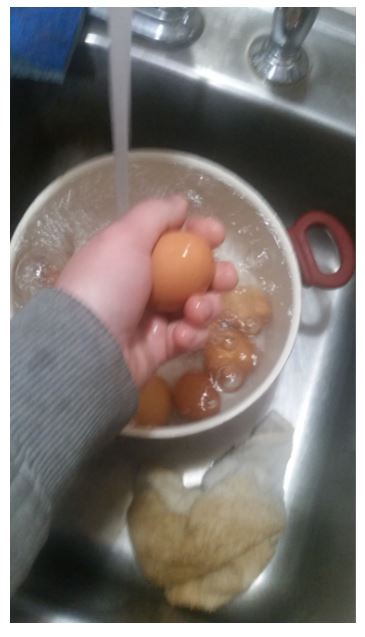
Peeling Eggs
- older eggs peel better than new eggs
- tap boiled egg on hard surface on flat end of egg
- remove broken shell from end, look for egg membrane between egg and shell
- gently slide thumb in between egg and membrane
- loosen egg
- remove shell
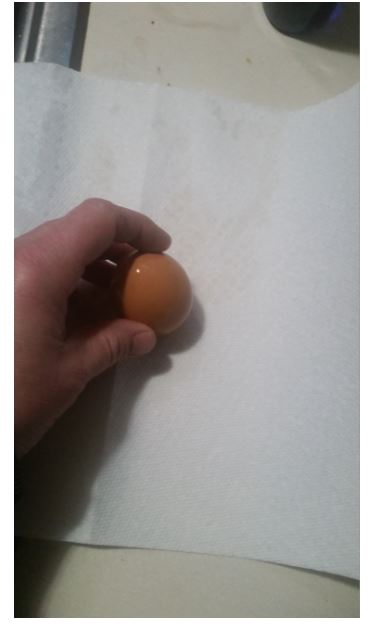
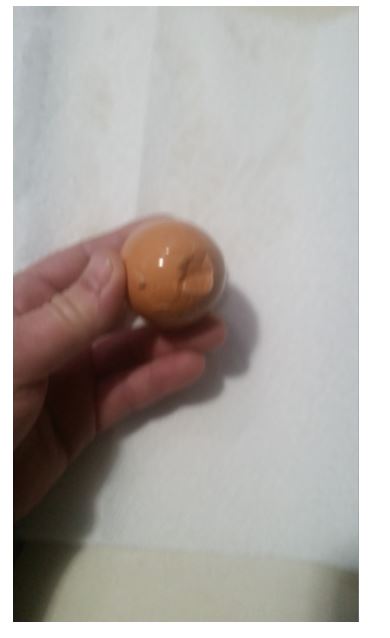
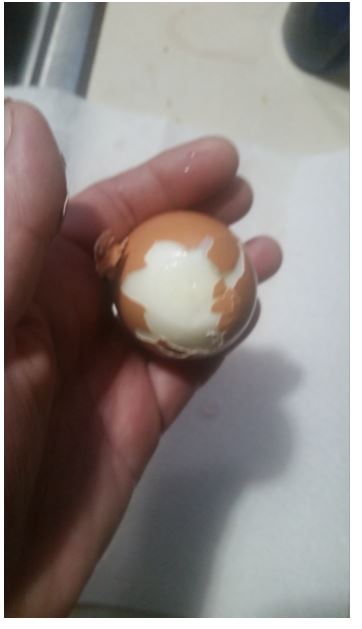
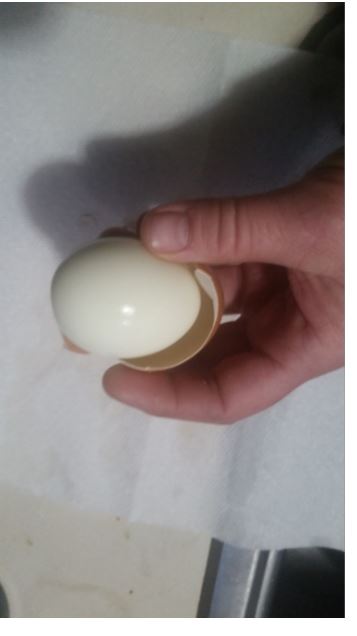
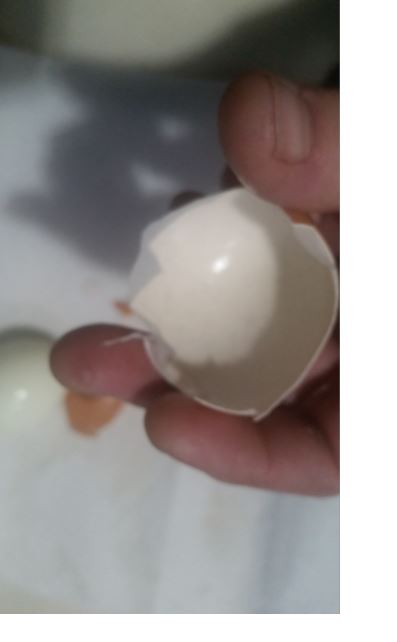
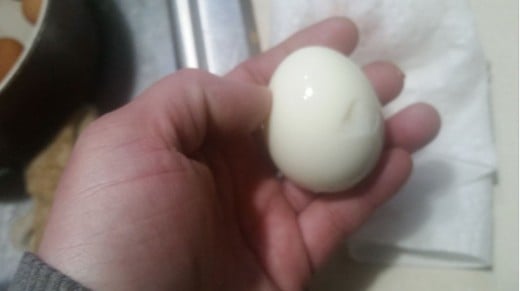
Recipes Using Hard Boiled Eggs
I have a few recipes that use boiled eggs:
- deviled eggs
- egg salad
- pickled eggs
- smoked eggs
- chipped beef on toast
- Easter eggs for coloring
- Soft boiled eggs are good in a bowl, chopped up with butter, salt and pepper
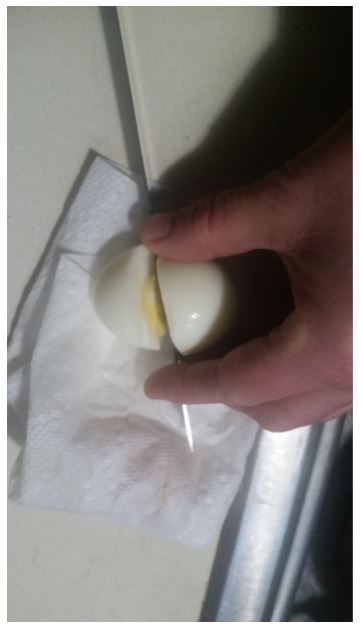
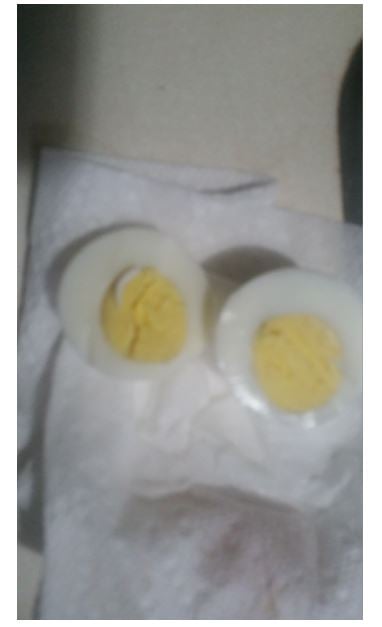
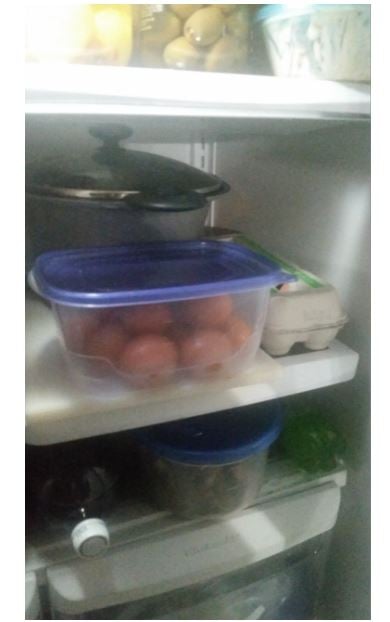
Egg Shell Choices
- discard shells in trash
- crumble shells and place on soil in house plants
- place egg shells in garden
- place egg shells in compost pile


